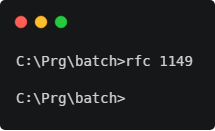Hack-the-Planet Podcast Episode 16
After a three week break, Episode 16 of our podcast went online…

- Exa – https://twitter.com/oocx/status/1213820805928194048
- Exa website: https://the.exa.website/
- Ubuntu 4GB Raspi 4 Fix: https://bugs.launchpad.net/ubuntu/+source/linux-raspi2/+bug/1848790
- Ubuntu 19.10: http://cdimage.ubuntu.com/releases/19.10/release/
- Ubuntu Fix: https://www.cnx-software.com/2019/11/04/raspberry-pi-4-4gb-models-usb-ports-dont-work-on-ubuntu-19-10/
- Fabians YouTube Kanal: https://www.youtube.com/user/fabse007/videos
- Docker Local-Persist: https://github.com/MatchbookLab/local-persist
- Smartes Katzenklo LuluPet – https://www.lulupet.co/
- RaspberryPi as USB Ethernet – https://www.raspberrypi.org/forums/viewtopic.php?t=245810
- SimpleHUD im App Store – https://apps.apple.com/de/app/simplehud/id1493003994
- Was ist Zeit / Steini – https://media.ccc.de/v/36c3-oio-195-was-ist-zeit-
- Doppelspalt Experiment – https://www.youtube.com/watch?v=3ohjOltaO6Y
- Machine Dreams / Joscha Bach – https://media.ccc.de/v/DS2017-8820-machine_dreams
- Chost in the Machine / Joscha Bach – https://media.ccc.de/v/35c3-10030-the_ghost_in_the_machine
- Elektronengehirne / Joscha Bach – https://chaosradio.de/cr187-elektronengehirne
- Was hat die PSD2 je für uns getan / Henryk Plötz – https://media.ccc.de/v/36c3-10717-was_hat_die_psd2_je_fur_uns_getan
- Das nützlich-unbedenklich Spektrum / fefe – https://media.ccc.de/v/36c3-10608-das_nutzlich-unbedenklich_spektrum
- Der Deep Learning Hype / Nadja Geisler, Benjamin Hättasch – https://media.ccc.de/v/36c3-11006-der_deep_learning_hypeClarkesche Gesetze – https://de.wikipedia.org/wiki/Clarkesche_Gesetze
- Magisches Denken – https://de.wikipedia.org/wiki/Magisches_Denken
- Spurious Correlations – https://www.tylervigen.com/spurious-correlations
- Scheinkorrelation – https://de.wikipedia.org/wiki/Scheinkorrelation
- Quantenverschränkung – https://de.wikipedia.org/wiki/Quantenverschr%C3%A4nkung
- Blauer Engel für Software / Maria Köhn und Eva Kern – https://media.ccc.de/v/36c3-10852-wie_klimafreundlich_ist_software
- LINQ – https://docs.microsoft.com/en-us/dotnet/csharp/programming-guide/concepts/linq/
- Kaffeemaschine mit 3D Drucker verbessern – https://www.youtube.com/watch?v=loYx0kuW_8Y








